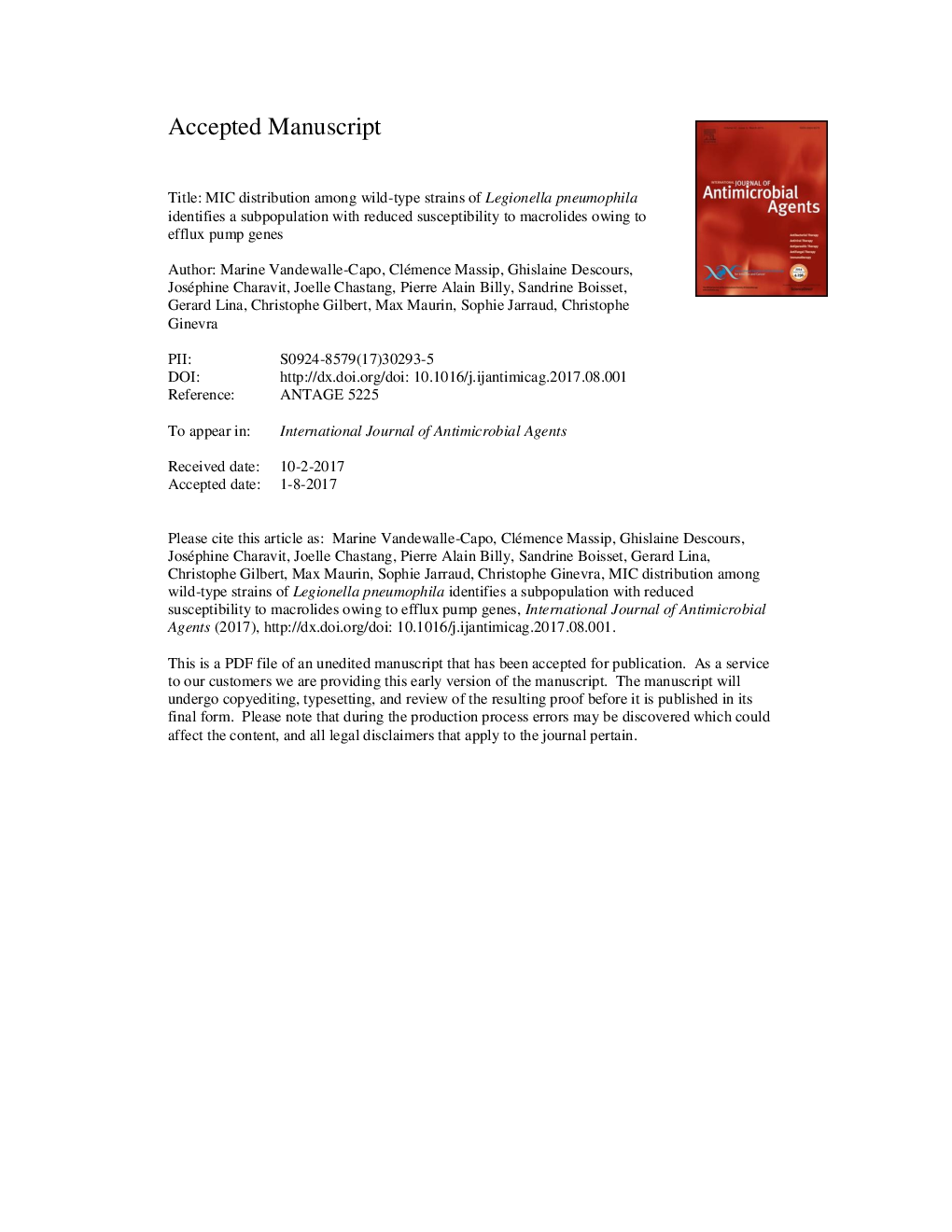| Article ID | Journal | Published Year | Pages | File Type |
|---|---|---|---|---|
| 8738783 | International Journal of Antimicrobial Agents | 2017 | 18 Pages |
Abstract
Legionnaires' disease is a severe pneumonia mainly caused by Legionella pneumophila that is treated by antibiotics. The purpose of this study was to describe the susceptibility of clinical strains of L. pneumophila to eight antibiotics used for treatment of legionellosis. The minimum inhibitory concentrations (MICs) of 109 well-characterised clinical strains of L. pneumophila serogroup 1 were determined by the broth microdilution method without charcoal and were compared with antibiotic-resistant strains selected in vitro. All strains were inhibited by low concentrations of fluoroquinolones, macrolides and rifampicin. The epidemiological cut-off values (ECOFFs) were 0.064âmg/L for ciprofloxacin, 0.064âmg/L for moxifloxacin, 0.032âmg/L for levofloxacin, 1âmg/L for erythromycin, 2âmg/L for azithromycin, 0.064âmg/L for clarithromycin, 2âmg/L for doxycycline and 0.001âmg/L for rifampicin. However, MIC distributions revealed a subpopulation of strains displaying reduced susceptibility to some macrolides (especially azithromycin), which correlated with the presence of the lpeAB genes encoding a macrolide efflux pump found specifically in sequence type (ST) ST1, ST701 and closely related STs. Thus, all isolates could be considered susceptible to the tested antibiotics, although macrolides were less active against some strains harbouring a specific efflux system.
Related Topics
Life Sciences
Immunology and Microbiology
Applied Microbiology and Biotechnology
Authors
Marine Vandewalle-Capo, Clémence Massip, Ghislaine Descours, Joséphine Charavit, Joelle Chastang, Pierre Alain Billy, Sandrine Boisset, Gerard Lina, Christophe Gilbert, Max Maurin, Sophie Jarraud, Christophe Ginevra,
